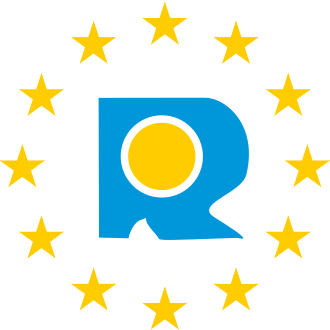

YESTERDAY we published nearly ten articles about the EPO, focusing on various different issues. SUEPO has just stated that it got "Support from OHIM Staff Committee" (Staff Committee of the Office for Harmonization in the Internal Market). OHIM, which has been around for a long time (established or formed in March of 1994) is said to have "sent a note for the attention of the Members of the Administrative Board and the Budget Committee" and to quote OHIM itself (there is no link to the original): "The OHIM Staff Committee feels deeply concerned and would like to call your attention to the urgent situation at the European Patent Office (EPO) [...] three staff representatives were suspended from service in Munich with immediate effect. The EPO has initiated disciplinary proceedings against them. Staff committees count on monitoring bodies such as the Administrative Board to make sure that staff representatives are free to express the worries of staff without fear of punishment for doing so. In other words, staff representatives need extra protection in order to avoid possible abuses of power [...] the Administrative Council should express its concern, in uncertain terms, to the EPO management."
"This is the hallmark of a failed state, or something that can be expected in repressive regimes like China's."It has become exceedingly disturbing that there is almost nobody to talk to. This is the hallmark of a failed state, or something that can be expected in repressive regimes like China's. Nobody expects the European Union to leave out on a limb such highly-educated people, let alone people who are drug dealers, convicted criminals, etc. How can this be and how come nobody dares to raise concerns in public, except a few brave politicians (them too the EPO has been abusing for daring to speak out)? Some explanations for this were noted in the article whose translation we posted last night, but here is another interesting body of text (someone sent it under the subject line "Cooperation with the competent national authorities") that helps explain how we got here and why it's hard to get out of there.
The national authorities of our Member States have rather systematically denied responsibility for staff in the EPO, referring to its international character (“we have only one vote in the Council”) and its immunity. In doing so they conveniently forget that Art. 20(1) of the EPO Protocol on Privileges and Immunities (PPI) demands that “The Organisation shall co-operate at all times with the competent authorities of the Contracting States in order to facilitate the proper administration of justice, to ensure the observance of police regulations and regulations concerning public health, labour inspection or other similar national legislation, and to prevent any abuse of the privileges, immunities and facilities provided for in this Protocol.” (emphasis added)
[There is little, if any, cooperation on the part of the Organisation with the national authorities “to ensure the observance of regulations concerning public health and labour inspection or other similar national legislation.” In particular, the Office’s refusal to allow the national Labour Inspectorates to audit the EPO is clearly not in line with the letter and the spirit of the PPI.
Data protection seems to be an area of “similar national legislation” where the Office should co-operate with the competent authorities of the Member States but refuses to do so. In this context it's important to again point out that the level of data protection at the EPO has been withering under our current President. We have been informed that the last person with technical knowledge of data protection issues is taking up another job in the Office. As a consequence the situation will be that - whatever the rules on paper – in practice there will no longer be any credible data protection in the Office. This should be a matter of grave concern not only to staff, but also to our applicants.
The infringements of fundamental rights currently imposed on EPO staff, e.g. infringements of freedom of association 2 and the draconian “health” reforms, are an abuse of the privileges and immunities that according to Art. 20 PPI should be prevented. Data protection would fall under the expression “other similar regulations.”